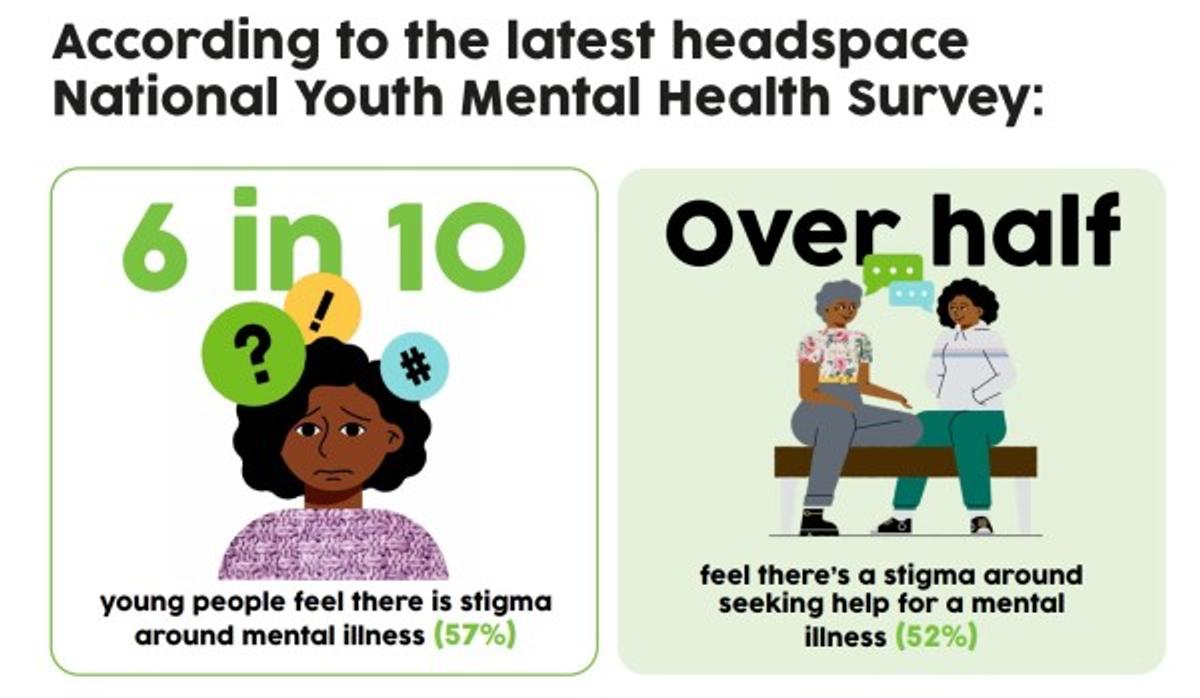Wellbeing

End of Term 1: Wellbeing Report
Dear Students, Parents, and Guardians,
In recent years, there has been a growing recognition of the importance of mental health and wellbeing, particularly among young people. At South Oakleigh College, open and honest conversations about mental health are essential for fostering a supportive and nurturing environment where everyone feels valued, heard, and supported.
Ending the Stigma:
It's time to break the stigma surrounding mental health. Contrary to outdated beliefs, experiencing mental health concerns is not a sign of weakness or failure. It's a normal part of the human experience, and seeking help is a courageous and proactive step towards healing and recovery. By promoting understanding, empathy, and acceptance, we can create a culture where individuals feel empowered to prioritize their mental health without fear of judgment or discrimination.
Recognizing the Signs:
It's essential to recognize the signs and symptoms of mental health concerns, both in ourselves and in those around us. These may include changes in mood, behaviour, sleep patterns, or appetite and persistent feelings of sadness, anxiety, or hopelessness. If you or someone you know is experiencing these symptoms, reaching out for support is okay. You are not alone, and help is available.
When to Ask for Help:
Knowing when to ask for help is crucial for promoting mental health and well-being. If you're struggling to cope with stress, anxiety, depression, or other mental health concerns, don't hesitate to seek support from trusted adults, such as parents, teachers, or school counsellors. Additionally, numerous resources and helplines are available for young people, providing confidential support and guidance whenever needed.
Supporting Each Other:
As a school community, we are collectively responsible for supporting and uplifting one another. Whether we offer a listening ear, provide words of encouragement, or connect someone in need with professional support services, we can all promote mental health and well-being. Together, we can create a culture of kindness, compassion, and acceptance where everyone feels safe and supported to thrive.
How Parents/Carers Can Support Their Child:
Parents and caregivers are crucial in supporting their child's mental health and well-being. Here are some ways you can help your child:
- Open Communication: Create a safe and non-judgmental space for your child to discuss their feelings and experiences. Encourage open communication and actively listen to their concerns without jumping to conclusions or offering unsolicited advice.
- Educate Yourself: Take the time to educate yourself about mental health issues and learn about available resources and support services. This will enable you to understand your child's needs better and provide informed support and guidance.
- Validate Their Feelings: Validate your child's feelings and experiences, even if you may not fully understand them. Let them know that it's okay to feel a range of emotions and that you support them unconditionally.
- Seek Professional Help: If you're concerned about your child's mental health, don't hesitate to seek professional help. Contact the school counsellor, family doctor, or mental health professional for guidance and support.
- Encourage Self-Care: Encourage your child to prioritize self-care activities that promote mental and emotional well-being, such as exercise, relaxation techniques, and hobbies they enjoy.
Resources and Support:
If you or someone you know is struggling with mental health concerns, please don't hesitate to reach out for support. Here are some resources that are available to you:
- School counsellors: Contact your student's Year Level Leader to schedule an appointment with a school counsellor.
- Helplines:
- Kids Helpline: 1800 55 1800
- Lifeline: 13 11 14
- Online resources: Websites and apps provide valuable information, self-help tools, and resources for managing mental health concerns.
- Headspace. Headspace.com.au
By working together as a supportive network of parents, caregivers, educators, and community members, we can break the stigma surrounding mental health and create a brighter future for our young people.
Elizabeth Smith
Director of Student Wellbeing




